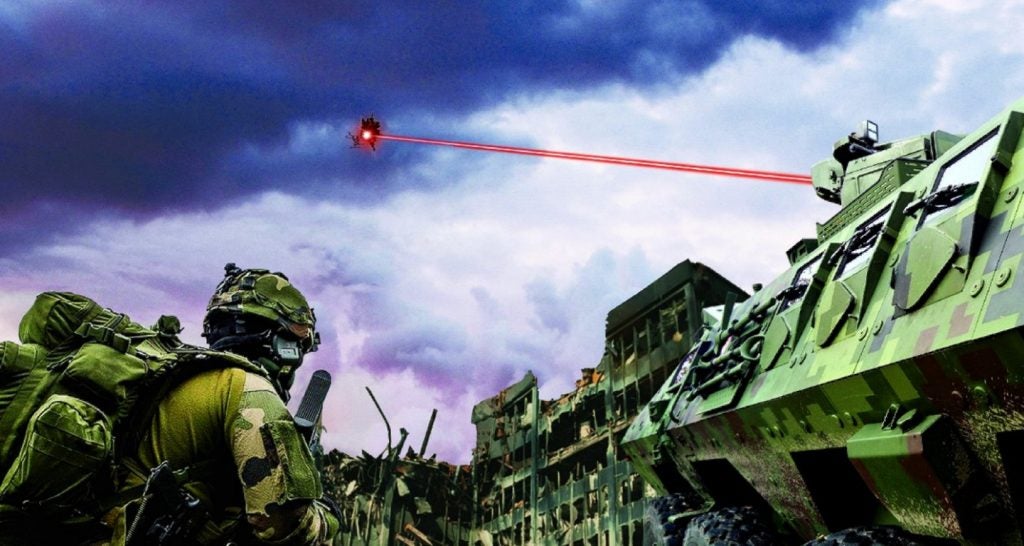The European Defence Agency (EDA), an EU agency that develops military resources, has completed its Tactical Advanced Laser Optical System (TALOS) project.
This is a major collaborative defence research project launched under the European Commission’s Preparatory Action onf Defence Research (PADR) scheme.
The project developed a compact design laser able to quickly and precisely neutralise an agile target – for example: rocket artillery and mortar or uncrewed aerial vehicles, while significantly minimising collateral damage.
Manufacturers addressed the following areas: concept of operations; target vulnerability; laser developments at 2 μm; laser combining technology; ethics and safety and a roadmap for European LDEW (Laser Directed Energy Weapon) systems.
Implementation culminated in the development of two demonstrators: a high power amplifier at eye-safer wavelength and an innovative propagation demonstrator allowing highly efficient coherent combining on target.
The results of the project will contribute significantly to enhancing EU member states’ defence capabilities in critical laser effector technologies.
TALOS brings together 16 beneficiaries from 9 European countries. Led by CILAS (France), it also includes TNO (Netherlands), Leonardo (Italy), DLR, Airbus Defence and Space, Stelar (Germany), MBDA France, Erdyn Consultants, Université de Limoges, ONERA (France), Ustav Fotoniky a Elektroniky (Czech Republic), Wojskowa Akademia Techniczna, AMS Technologies (Poland), QinetiQ (UK), John Cockerill Defense (Belgium) and AERTEC Solutions (Spain).
Directed energy weapons market
Following years of continuous research and development, directed energy weapons (DEW) are now rapidly transitioning from the sphere of experimental technologies to the actual battlefield as it reaches a sufficient level of maturity to warrant deployment, GlobalData says.
As concerns over the capabilities of peer-level adversaries continue to mount, the pressure to achieve and retain technological overmatch continues to drive investment in this sector.
DEWs offer precise targeting for greater accuracy; the proliferation of low-cost armed small-uncrewed aerial systems (UAS) and drone swarming tactics has spearheaded the development of laser-based counter-UAS (C-UAS) systems. Also, the recent introduction of hypersonic missiles into the global threat matrix has led some observers to consider the potential of DEW as an effective countermeasure to this emerging technology.
In terms of comparative total expenditure, the US accounts for the largest share of expenditure globally, with a market share of 41.6% ($1.5bn), followed by China and France with a share of 14.8% ($534m) and 13.9% ($501m), respectively.
Other nations with noteworthy expenditure include Turkey, which spent $574m as part of its efforts to support its high-tech defence industries, as well as Germany and the UK, who spent $195m and $176m, respectively, as they remain invested but more cautious with their research and development efforts.









